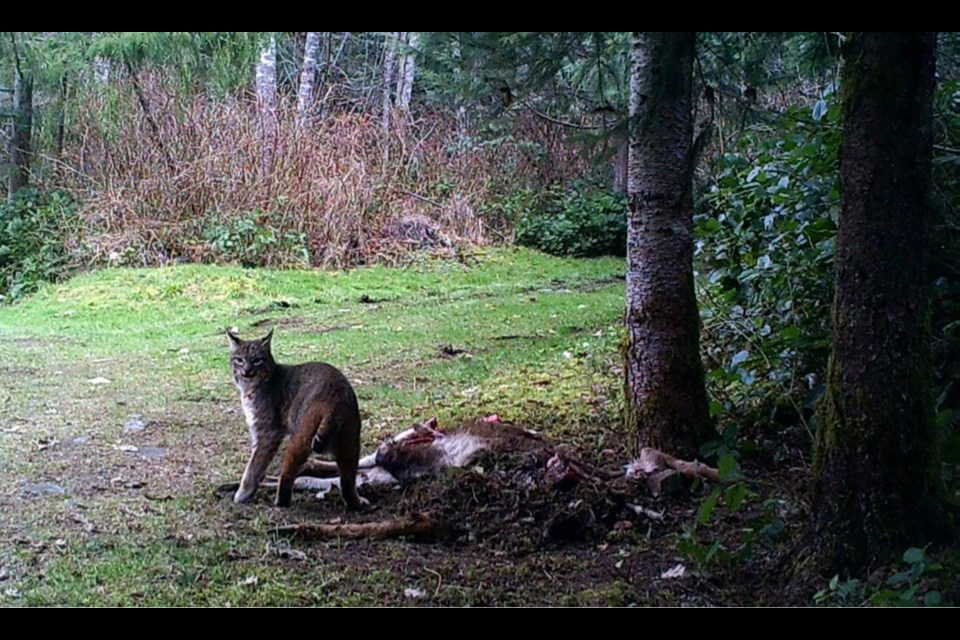A world of misinformation and viral sensational news inadvertently became a part of Corinea Woloschuk’s reality earlier this month.
“I’m a little miffed because I never used the word ‘witch,’” said Woloschuk. “That word was in every single title [used by media organizations], and I’m actually mortified.”
Woloschuk was referring to a video taken by a trail camera on McLeod Road in Powell River more than two years ago. The video captured less than one minute of some seemingly disturbing images of two individuals with little clothing on, with long hair, touching a dead deer and possibly eating it.
“This happened in February of 2021,” said Woloschuk. “Something had killed a deer down the road from us [on a neighbours property], and so my grandpa thought of putting up a wildlife camera [with permission] near the deer to see what kind of animals it would attract.”
The trail camera takes three-round bursts and is motion activated, meaning it takes three consecutive photos even if the object has moved away.
“We got a bobcat on the camera,” said Woloschuk. “We went up [the road] maybe two days later and grandpa said, ‘there are naked people on the video.’”
Woloschuk didn’t believe it, but “he showed me and made me promise not to share it with anyone.”
Her grandfather wanted to forget it ever happened, she said.
Woloschuk thought about going to the authorities, but she also thought that maybe someone saw the camera during the day and came back later to play a prank; she decided to leave it at that.
Fast-forward to May 2023 and the usual quiet serenity for Woloschuk and her family disappeared.
She admits to recently sharing the video taken by her trail camera with a private social media group. The private group (permission required to join) enjoys sharing information and imagery of taxidermy and natural preservation sciences/arts.
“I posted it as a joke, and it just went viral,” said Woloschuk. “This lady contacted me, I thought it was a college student, but she was from a media organization in the United Kingdom, and I gave her permission to write a story about it.”
The next thing Woloschuk knew, her face (from her Facebook profile) was plastered all over the internet, and the words “witch” and “witches” were used in headlines to describe the two figures in the video.
“I found it concerning how quickly false information was spread,” said Woloschuk. “I was especially disturbed by the use of the word ‘witch’ especially in the United States, where [the story] really blew up.”
Woloschuk feels that the climate for women in the US right now has regressed and women’s rights are being threatened.
“It wasn’t long ago in our history that women were being burned at the stake and being accused of being witches,” she said.
Burning at the stake was a traditional form of execution for women accused of witchcraft in 16th century Europe. In modern times, demonizing women for political gain has been a popular trope, thanks in part to former United States president Donald J. Trump.
Fake and sensational stories have attracted people’s attention throughout history. These days, with the use of social media platforms used by millions of people, misinformation can be spread globally in a matter of seconds; some who perpetuate it have ideological or economic interests, others may have unknowingly clicked on something a friend or relative sent.
The definition of misinformation is: false or inaccurate information which is deliberately intended to deceive.
Woloschuk didn’t deliberately spread fake news, but others created their own story around the video and spread it across the globe.
“I learned about how fast misinformation can spread as the truth,” said Woloschuk. “Be careful what you put out there, I feel bad it ever happened and made Powell River famous for all the wrong reasons.”




